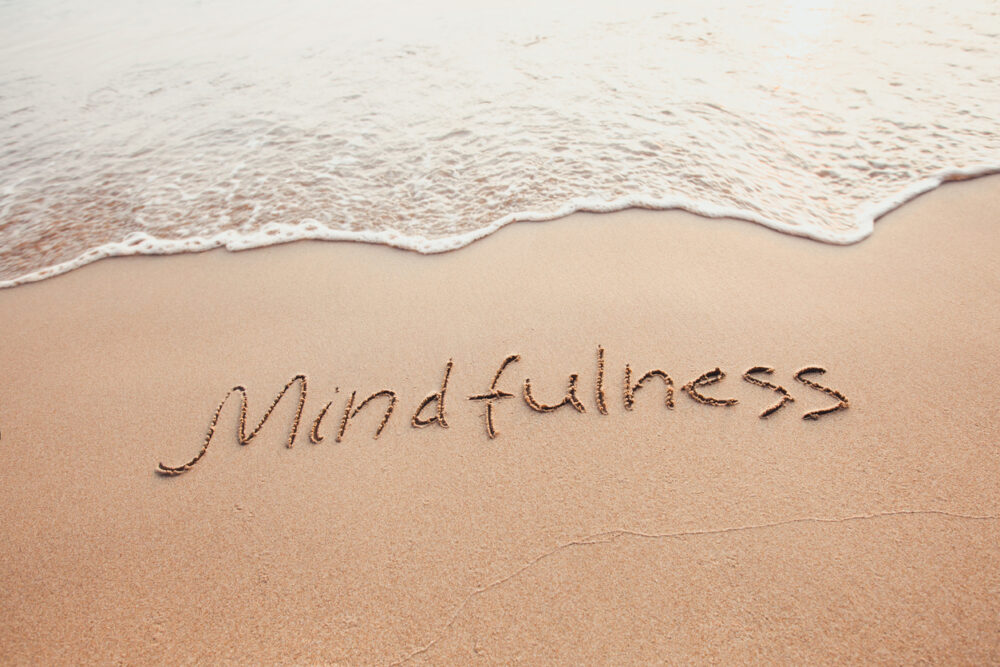In the following article, Lisa Chiang, one of the dedicated Counsellors in the Student Counselling and Wellbeing team at Griffith University shares some useful strategies to help you focus, unwind and improve your state of mind.

Start with what is achievable
When you read of the benefits of a mindfulness practice you might feel incredibly motivated to start with an hour long practice each day. Although this plan might work for the rare few you might be setting yourself up for disappointment. Start small, enjoy the process and use a guided tool like the Meaningful Minute videos.
Work it into your routine
What is the first thing you do when you get up? Many of us instinctively look for our phones and go onto social media. Just checking in with yourself on how that affects your mood and whether incorporating a short meditation into your morning routine would be beneficial in how you start your day. Some might find that just before bed is a good time for them as it helps them wind down, reflect and get a good night’s rest.
Whatever time of day suits you start by committing to a regular time to practice. Set an alarm to remind yourself and have quick and easy access to whatever tools you use.
Be kind to yourself
If you have not practiced one day, that’s ok, just start again the next day. You may notice that your mind may wander many times during your practice, that is completely normal. When you notice that it has wandered just gently and kindly bringing it back to the meditation or to your breathe.
Become more aware
Start to become more aware of your physical body and your emotional state. You may notice tightness in the muscles on your shoulder, a clenching of your jaw or butterflies in your stomach. When you notice these, just checking-in with yourself on what is happening for you without judgement and what you might need right now to take of yourself. At these times it is useful to just pause and take a moment to connect with the present.
You may find that after practicing these short meditations that you would like to enjoy more of the benefits of a longer meditation practice. Knowing that you can always return to these short meditations when you are pressed for time or need a quick change of headspace.
Here’s to your improved wellbeing!
Short meditations work
No time to meditate? I struggled with that too. Just start by giving yourself a few minutes. Research has shown that even brief mindfulness meditations have the above benefits.
The Griffith Health and Wellness team has created a series of Meaningful Minute videos, which are around 3 minutes long to support you in beginning a daily practice of mindfulness, and to simply pause and take that moment to reflect.
Find one that resonates with you, try out the different ones, or you can just take a moment to connect with your breathe. Try it at different times of the day to find what is effective for you. We create these weekly and you can view them on this playlist.



